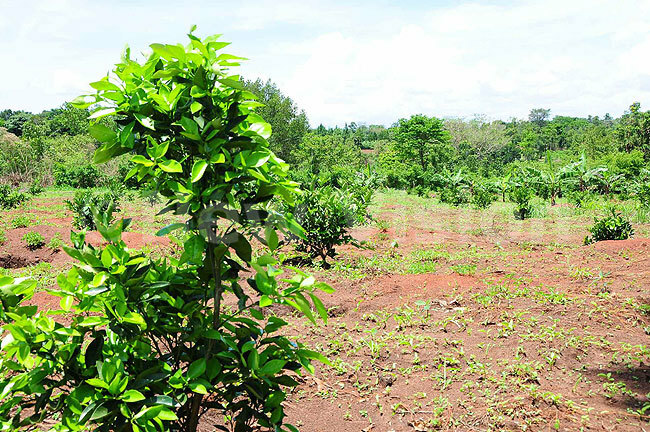Don't ignore that lemon fruit
There are always plenty of lemons on the market beginning March until August.
(Credit: Umar Nsubuga)
HEALTH | NUTRITION
Aisha Nakimuli, a nutritionist in Wakiso, says lemon fruits have yellow skins and others have green ones.
"People must know that the colour of the fruit differs depending on the type of seed and the type of soil in which it is grown. These fruits have a sharp acidic taste," she says.
Twaha Kakooza, who grows lemons, says that in Uganda there are two types of lemon. There is the big soft yellow one, which mainly comes from Lira, and the small hard green one, which is mainly grown in most parts of Busoga.
According to Sarah Namulime, a vendor at Kawempe market, it is not possible to have the fruit all-year-round. During the hot season, lemons are imported from Tanzania (big yellow) and DR Congo (both small green and big yellow ones).
She says the importation is only done when the situation gets really bad in the country.
There are always plenty of lemons on the market beginning in March until August. And when they are aplenty on the market, some of the fruit is exported to South Sudan.
Like many fruits, depending on how much there is on the market, the price of the lemons will either go up or down.

Namulime says when there is plenty on the market, the price of a sack will go as low as sh20,000 or sh25,000. When there is a scarcity, a sack can go for sh70,000 - 80,000.
Currently, there is still some availability. The price of a sack is between sh50,000 and sh60,000.
Kakooza says the weather also largely affects the quality of the fruit. When lemon grows in a relatively hot season, it will not be as juicy; it is dry in the inside, yet also when the rains are a lot, the fruit easily gets rotten.
"How long the fruit stays after harvesting entirely depends on how one stores it. If kept well, the fruit can stay good for up to two weeks," he says.
Different traders have observed that the fruit is mostly preferred in the hot season mainly to make juice, and say the market is pretty good because of the various uses of lemon for which most people buy them.
The lemon is both a small evergreen tree native to Asia. The fruit is used for culinary and non-culinary purposes throughout the world - primarily for its juice, though the pulp and rind (zest) are also used mainly in cooking and baking.
The distinctive bitter taste of lemon juice makes it a key ingredient in many dishes across the world.